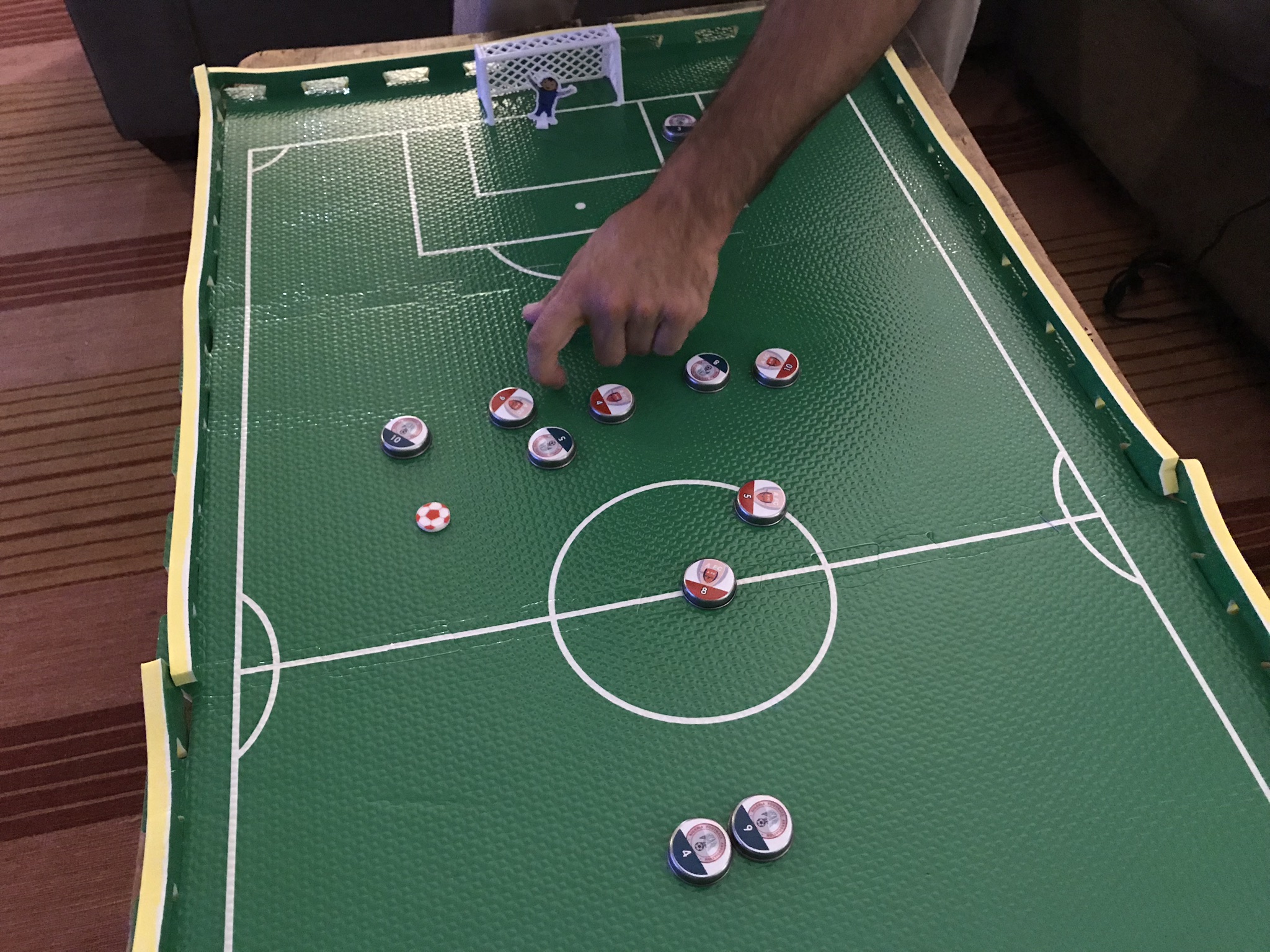Back in the halcyon days of 2018 a surprising board game crowdfunding campaign made quite the splash. NIBCARD games burst onto the scene with an IndieGogo (not Kickstarter) looking to fund both a board game cafe and simultaneously release 14 full on board games. As someone who is skeptical of Kickstarter games in general, I surely did not think we’d be seeing successful fulfillment in the promised 3 months. Nevertheless, I tossed NIBCARD a few pennies for 3 games as a show of support for their vision of building the board game scene in Africa. I figured I’d forget about the games and get a surprise package a year or so later and could sit down to play at that time. Well folks, NIBCARD put 95% of Kickstarter campaigns to shame when I got all 3 games in only 2 months.
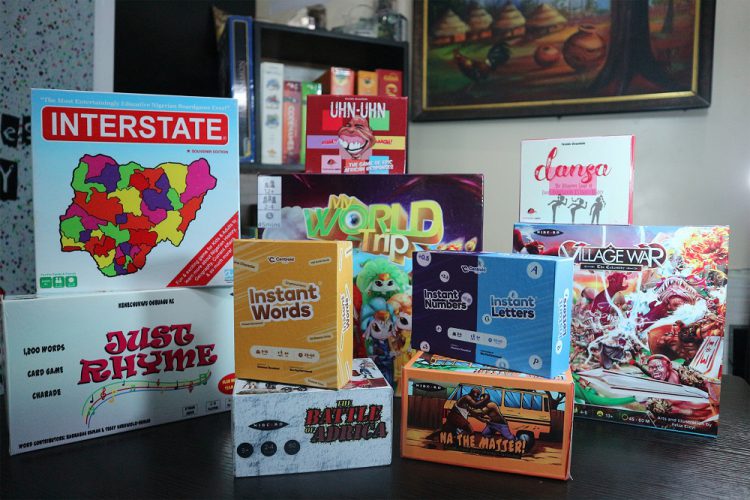
Igure Table Soccer
As the initial campaign was hot on the heels of the 2018 FIFA World Cup I was hyped on soccer energy and immediately ensured that my selection of games included Igure Table Soccer. Generally speaking I am a fan of real-time board games and dexterity board games so seeing both elements combined into a massive game of tabletop soccer was impossible to resist—and boy is it massive.
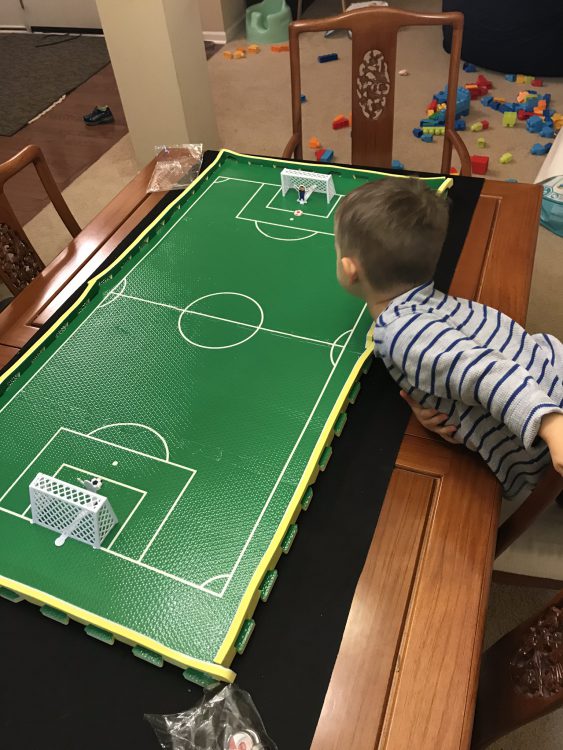
The soccer pitch is made up of 4 large foam rectangles that fit together like puzzle pieces. The top surface itself is made of a slick plastic coating that allows for the actual playing pieces to zip around the pitch. Goals and goalies are plastic, and additional foam barriers slit in around the edges of the pitch to keep pieces from sliding off. The player pieces look like metal bottle caps that don’t have the serrated “crown”; they’re thicker and heavier than bottle caps but that’s the easiest way to describe them. It also comes with stickers so that you can represent your favorite team; I chose the Arsenal look-alike for one team in an effort to keep marital peace and a Nigerian team for the other.
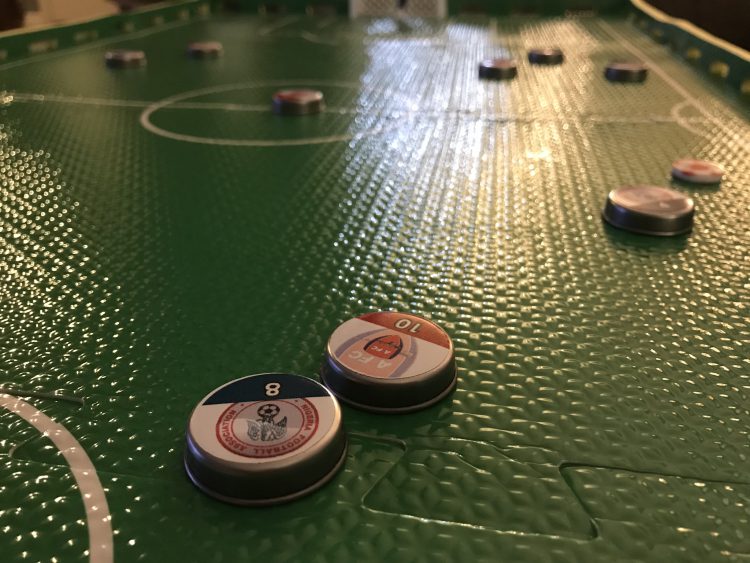
The rules in my version are roughly translated, but they do enough to get you going. Besides, the game is soccer. If you know how to play soccer you know how to play Igure. All the rules you might expect are here: infractions if your player hits an opponent’s player without hitting the ball first, corner-kicks, goal kicks, etc. Throw-ins work by putting the plastic ball token on top of your player piece and hitting it in from the side. The only “house rule” we play with is allowing players to move the ball to any point around the player piece controlling the ball; this isn’t spelled out in the rules but prevents you from having to zig-zag back and forth across the field (unless you want to, of course).
While some games in the dexterity genre attempt to cross into the world of “serious” games, most are exercises in finesse and skill. Igure is no exception. It reminds me a bit of Crokinole in the sense that there is a very real skill to hone. While you can take a shot from anywhere—including goal kicks—power shots from across the field will only get you so far. Sustaining success is going to involve getting good at passing the ball between players and taking advantages created by errant movement of your opponent’s pieces.
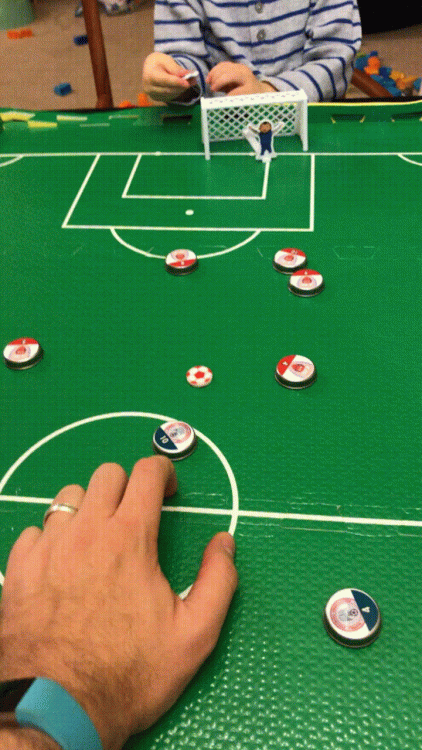
The tension of a good match of soccer is captured in Igure. Play occurs over two real-time 15 minute halves, with no stoppages for time. Careful judgement of angles and direction gives way to frantic play as time approaches, and you’ll even see the winning team engaging in some good natured slow-play. This emergent simulation of an actual match is satisfying, and worked to sustain my World Cup fever much longer than is normal in the states (especially in 2018).
NIBCARD Games
As much as I enjoy Igure, the real story here is NIBCARD Games and founder/designer Kenechukwu Ogbuagu. In a world where companies with access to vast publisher networks and conventions routinely overpromise and underdeliver on the manufacture of a single board game made from cubes and cards, seeing Ogbuagu fund, produce, and simultaneously fulfill 14 games internationally was nothing short of marvelous.
The success continues, as well. NIBCARD has continued to host Western Africa’s first boardgame convention ABCON while publishing multiple games a year. Not all of them are as light and simple as Igure either. The other two NIBCARD games in my collection are Homia—a game about building a multicultural and multitribal home in Nigeria—and Oya!, a game card trading and area control game that reflects the reality of life on the streets of Lagos. Design has continued unabated as Ogbuagu continues fulfilling his passion of creating games to tell stories and share Nigerian culture.
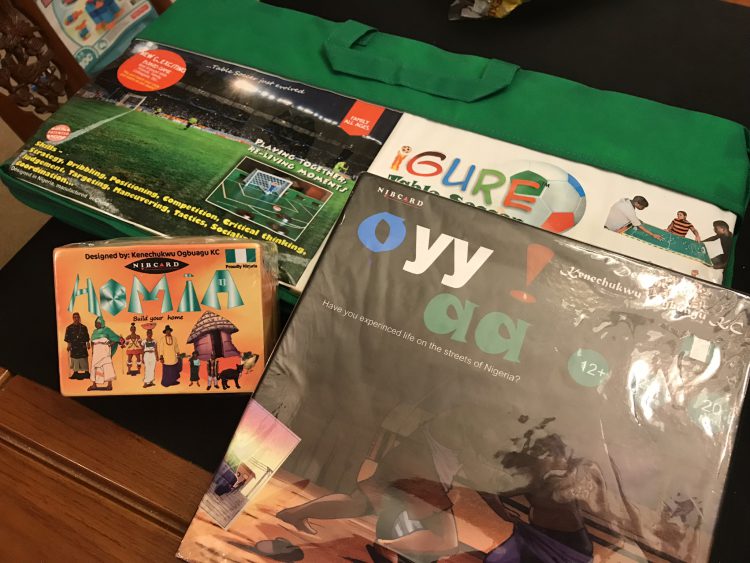
I’m really glad I decided to support the initial IndieGogo. Taking a swing on something new doesn’t always pay off, but in this case I can’t think of a better way I’ve spent my hobby dollars. I love when games can share new stories and perspectives, so I’m particularly excited about the upcoming game Village War. It is the first in a 5 game series that seeks to share the stories of the Igbo tribe; a 5 game series is ambitious, but so was releasing 14 games and building a cafe.
NIBCARD’s games are available through their webstore.
